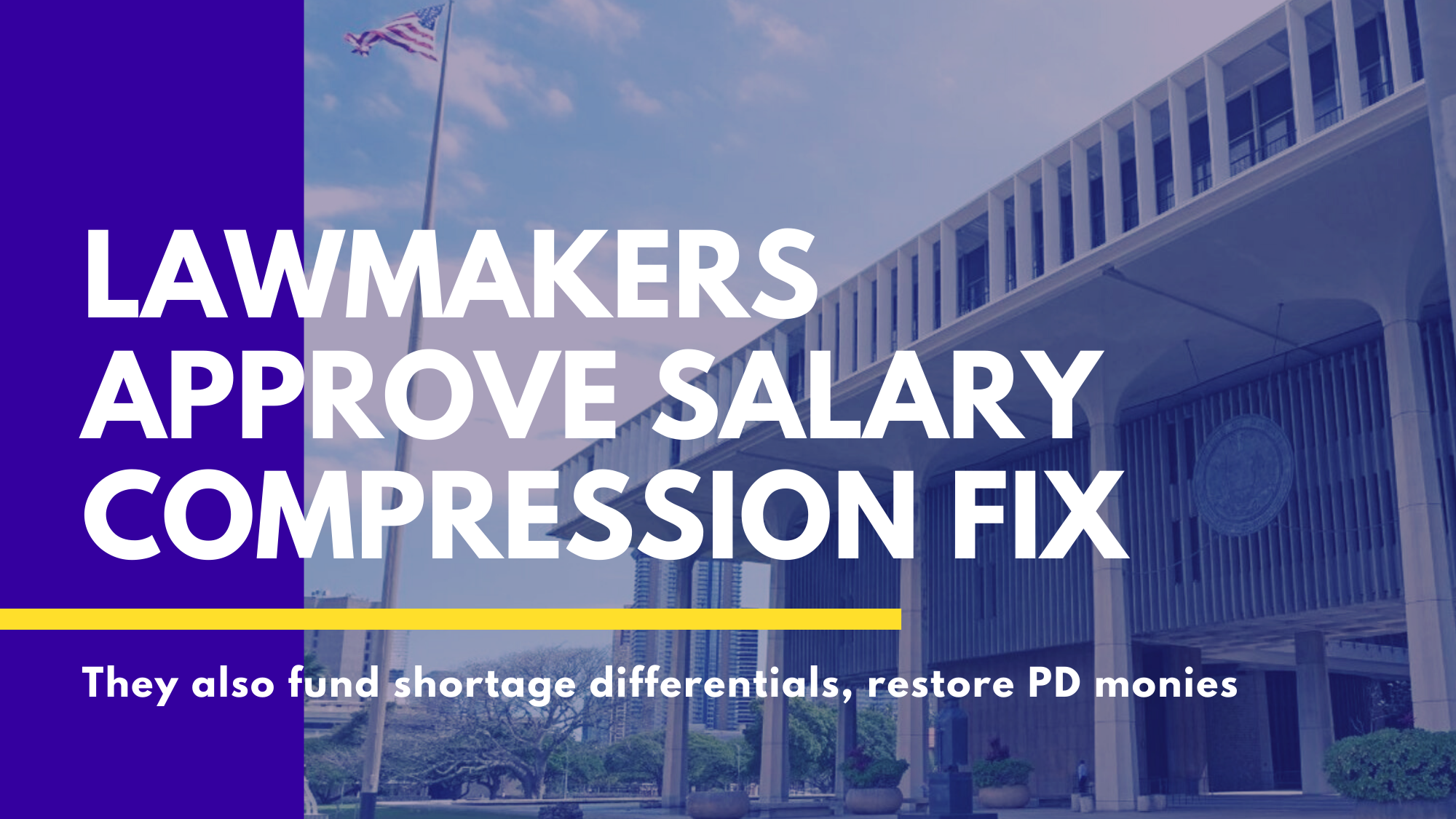They also fund shortage differentials, restore PD monies
Posted: May 3, 2022
State lawmakers Tuesday approved a state budget that includes more than $164 million to end salary compression for experienced educators, fund shortage differentials, and restore paid job-embedded professional development for all teachers.
The proposals provide funding to:
- Increase the salaries of roughly 8,700 educators by anywhere from $7,700 to $26,000, depending on their years of experience, addressing those who have been stuck or compressed in the middle of the salary scale for years. Read more about compression.
- Continue shortage differentials of between $3,000 and $10,000 a year for more than 4,000 special education classroom and Hawaiian language immersion teachers and those who teach at geographically hard-to-staff schools.
- Restore on-the-job paid professional development for all teachers, boosting their pay by nearly 1.5%.
During a livestream briefing on HSTA’s social media channels Monday evening, House Finance Chair Sylvia Luke said, “With the additional amount of revenues (from the economic recovery as the pandemic faded), we have committed early on that we will address this issue,” referring to compression.
The compression fix will be solved by repricing, a process allowed under the state’s collective bargaining law that members of other unions have benefitted from over the years.
“The governor and the executive can do this through repricing, so that’s the type of language we’re using this year. It should be repricing. And you don’t need a new law, you don’t actually need new legislation to do this and the governor can do it right away. So we’re making sure that funding is not a burden,” Luke said.
“This should be an unretirement party for many of the terrific teachers out there,” Luke added, referring to the fact that a number of Hawaii’s public school educators are likely not to retire anytime soon if compression is addressed.
Students benefit, she said, because “the more experience and classroom experience these teachers have, you’re never going to gain that through any type of schooling or books. You have to have the classroom experience.”
“That’s very exciting news. We don’t want money to be a barrier in keeping good teachers in the classroom,” Luke added.
HB1600, the state budget approved Tuesday by lawmakers in both the Senate and the House, calls for:
- $130 million to address compression via repricing and restoration of 21-hours of job-embedded professional development
- $34.5 million to address shortage differentials for teachers in hard-to-staff geographic areas, special education, and Hawaiian language immersion
The bill now awaits the governor’s approval.
“With the last conversation I had with the governor, the governor is committed to ending compression,” Luke said. “I’m planning to invite some of the members of the HSTA leadership when I meet with the governor after session.”
Senate Ways and Mean Chair Donovan Dela Cruz said on the Senate floor Tuesday, “Special attention was paid to providing salary differentials for hard-to-recruit-and-retain state positions. In addition, making available workforce development education and training opportunities to ensure that state government employment and public service remain a competitive and sought-after career choice.”
Dela Cruz added, “I want to give a big mahalo to (House) Finance Chair (Sylvia Luke). I appreciate her ability to see the big picture and understand the inner workings of government and how it operates. We met almost every day for three weeks, hours on end, discussing all of your priorities, all of the House’s priorities, all of the legislature’s priorities, our community’s priorities, the administration’s priorities, to develop a sound budget, a complete budget.”

